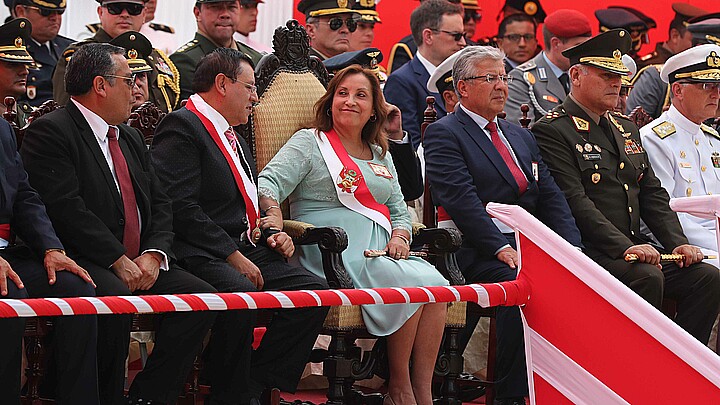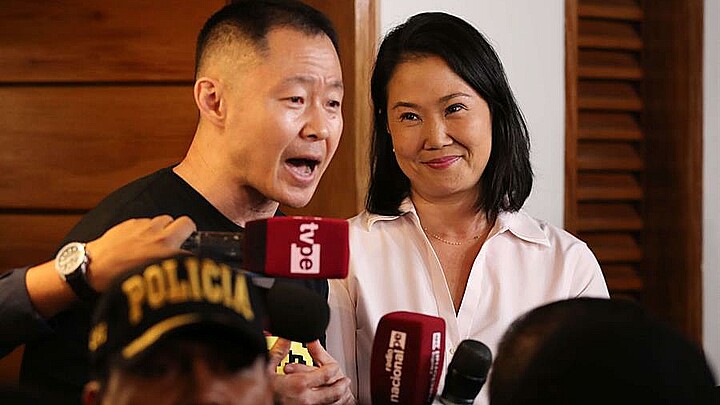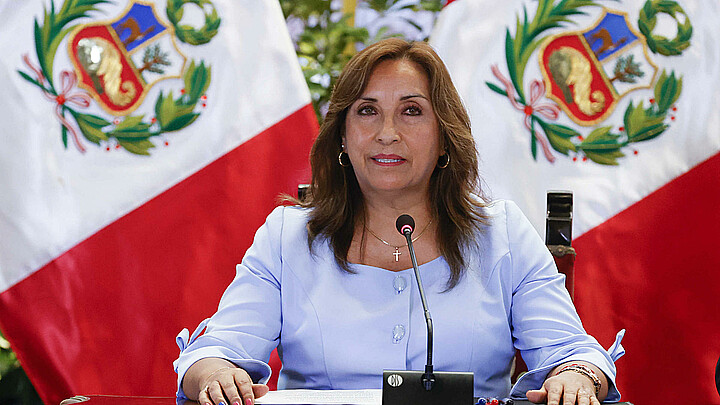Politics
Peru's socialist president under investigation for influence peddling and 'criminal organization'
Although Castillo once enjoyed wide support among Peru’s rural poor, his support has evaporated in the months since he first took office
May 30, 2022 8:19am
Updated: May 30, 2022 2:01pm
The office of Peru’s attorney general announced on Sunday that it is including leftist President Pedro Castillo in an investigation into alleged crimes including influence peddling, collusion and “criminal organization.”
In a message posted to Twitter, Peru’s Public Ministry said the Andean country’s top prosecutor, Pablo Sanchez, will lead the investigation into the socialist leader given the “seriousness of the accusations” made in an investigation against former Transport and Communications Minister Juan Silva – along with six legislators form the opposition bench.
According to a U.S. News report, Sanchez began working on the case more than three weeks ago in order to determine if elements within the ministry had constructed a “criminal network” to award public contracts. On the ground, sources familiar with the matter have said that Castillo would have had to know about such a network.
"The president will be guaranteed the full exercise of his right to defense, and respect for article 117 of the Political Constitution," the Public Ministry stated on Twitter, referring to the immunity granted to Peruvian presidents by the country’s constitution.
Last month, Peruvians took to the streets to protest as fuel and fertilizer prices reached historic highs – prompting Leftist President Pedro Castillo imposed a curfew in Peru’s capital, Lima and to declare a state of emergency along the nation’s highways.
Although Castillo once enjoyed wide support among Peru’s rural poor, his support has evaporated in the months since he first took office.
According to a recent Datum poll, only 19% of the population supports the former schoolteacher and trade unionist who won the presidency under a “Marxist-Leninist” banner in June of 2021.
In Peru’s capital region, 85% of those polled said they disapprove of Castillo – while disapproval stood at 79% in the country’s eastern region, 77% in the center and 62% in the south, La Republica reported.
Furthermore, 77% percent of women disagree with Castillo's government, while 74% of male respondents disapprove. Similarly, there is evidence to suggest that disapproval of the president exceeds 70% across all socioeconomic sectors.
But Castillo’s cabinet – which has suffered several reshuffles in recent months – also faired poorly in the survey.
Prime Minister Aníbal Torres Vázquez currently holds a 62% disapproval rating after only two months as head of the Council of Ministers – a higher figure than his predecessors Guido Bellido (51% disapproval) and Mirtha Vasquez (58% disapproval.)
As an expression of the political crisis and the distrust of Peruvians in the authorities, Datum also found that 82% of the population disapproves of the work of the Peru’s Congress.
Peruvians have long been divided with regards to Castillo’s socialist regime, but protests driven by rising fuel and food prices further angered voters who have, in recent months, called for Castillo to step down and call for new general elections.
While in office, he has survived two impeachment attempts and been forced to reshuffle his cabinet countless times.










